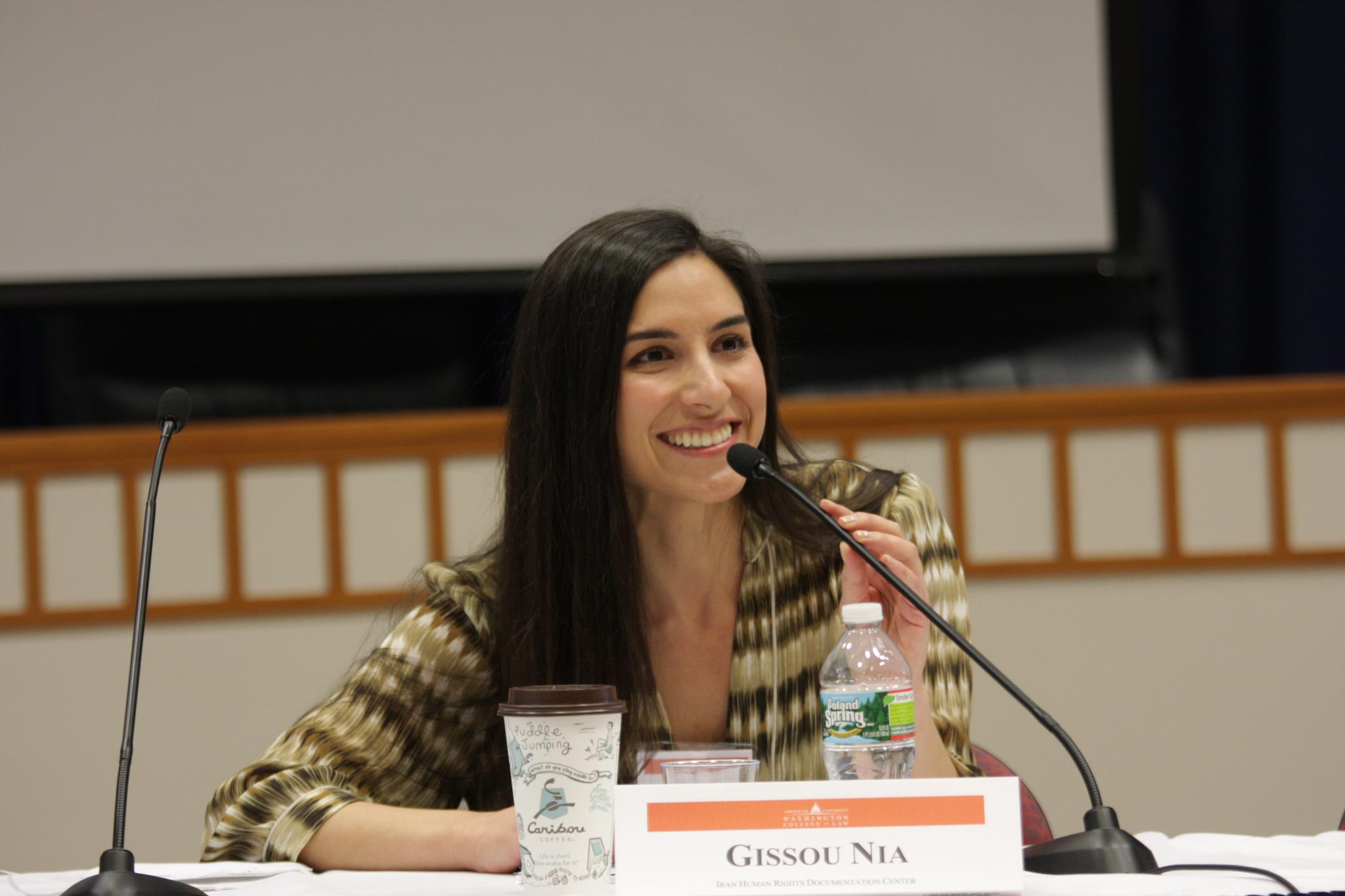
Human rights defender's story: Gissou Nia from Iran
The Iran Human Rights Documentation Center, led by Gissou Nia, seeks UN consultative status to bring Iranian human rights violations to international attention, despite being hindered by bureaucratic challenges and the inability to conduct fieldwork in Iran.
The Iran Human Rights Documentation Center is an international NGO based in Connecticut, USA that aims to establish responsibility for patterns of human rights abuses in Iran by developing a comprehensive and objective historical record of human rights abuses in Iran that is accessible to the public. Founded in 2004 by a group of human rights scholars and lawyers, IHRDC ultimately aims to promote accountability and respect for human rights in Iran at the international level.
IHRDC submitted its application for special consultative status to the Committee on NGOs in 2010. Since its application, IHRDC has been deferred 8 consecutive sessions and has received 38 questions from the Committee on NGOs.
‘Even the UN Special Rapporteur on the human rights in Iran is denied access to the country’
In Iran human rights work is met with suspicion from government authorities and those who work on human rights are often the targets of political pressure. Over the past decade, independent civil society inside Iran has effectively been dismantled. Thus the main challenge for the Center is the inability to physically travel to Iran to carry out field investigations in a transparent manner.
However this has not prevented the Center from gathering credible evidence through secure electronic transmissions from witnesses and other sources inside the country. Additionally, the Center carries out field missions to neighboring countries that have large number of refugees fleeing Iran on grounds of political, religious and socio-cultural persecution.
While Iran prevents NGOs and UN human rights mechanisms from entering the country, some member states of the Committee on NGOs, namely China, Russia and Cuba, play a role in curbing the interaction between civil society and the UN on behalf of Iran.
‘We receive many questions which have been asked and answered before, but are nonetheless repeated, often by the same small group of Committee members’
Members of the Committee on NGOs have repeatedly asked the organisation why it focuses solely on Iran, how it can gather information without having physical access to Iran, how it can operate independently if it garners government funding, and to provide detail on how it has actively participated in UN activities without consultative status.
In January 2012, Nia attended the Committee on NGOs and participated in the question-and-answer session. She noted that the focus of the NGO, like other country-specific initiatives, was due to the Center’s founders concern about the deteriorating human rights situation in their homeland. She also highlighted the Center’s role in accurately reporting human rights violations through the collection of witness testimony, public source documents, and secure electronic correspondence. Furthermore, it was emphasised that no government reviews or participates in anyway with the organisation’s work.
Over the past 8 sessions, these answers have also been provided in writing time and time again. However, the Committee continues to defer the organisation’s application by asking similar questions each session.
‘We wonder how a group that has a ten-year track record of producing credible human rights reporting that is heavily relied on by the international community, academics and the media is somehow continually deferred with little to no explanation’
Fortunately, the lack of consultative status has not completely prevented the Center from engaging with the UN in its aim to raise awareness and advocate for human rights in Iran.
IHRDC advocates for broader support of the annual UNGA country-specific resolution on the human rights situation in Iran. Additionally, IHRDC has led multiple delegations of Iranian human rights defenders, including Nobel Peace Prize laureate Shirin Ebadi, to Geneva to hold briefing sessions with UN member states on the human rights situation in Iran. Finally, the organisation participated in the first-ever Universal Periodic Review of Iran in 2010 and will again do so in 2014.
However, participation has been limited by the lack of ECOSOC consultative status. To attend sessions and panels in Geneva, the organization must be invited by UN-accredited NGOs, and thus, must make statements under the banner of the accredited NGO.
NGOs like IHRDC would be able to give statements, submit reports and interact with the UN human rights system in a much smoother manner and with far less of a drain on their already limited resources if consultative status were granted.
For more information on the work of IHRDC see http://iranhrdc.org
For more information on the risks facing human rights defenders in Iran, see ISHR’s Briefing Paper, submitted for Iran’s forthcoming Universal Periodic Review
